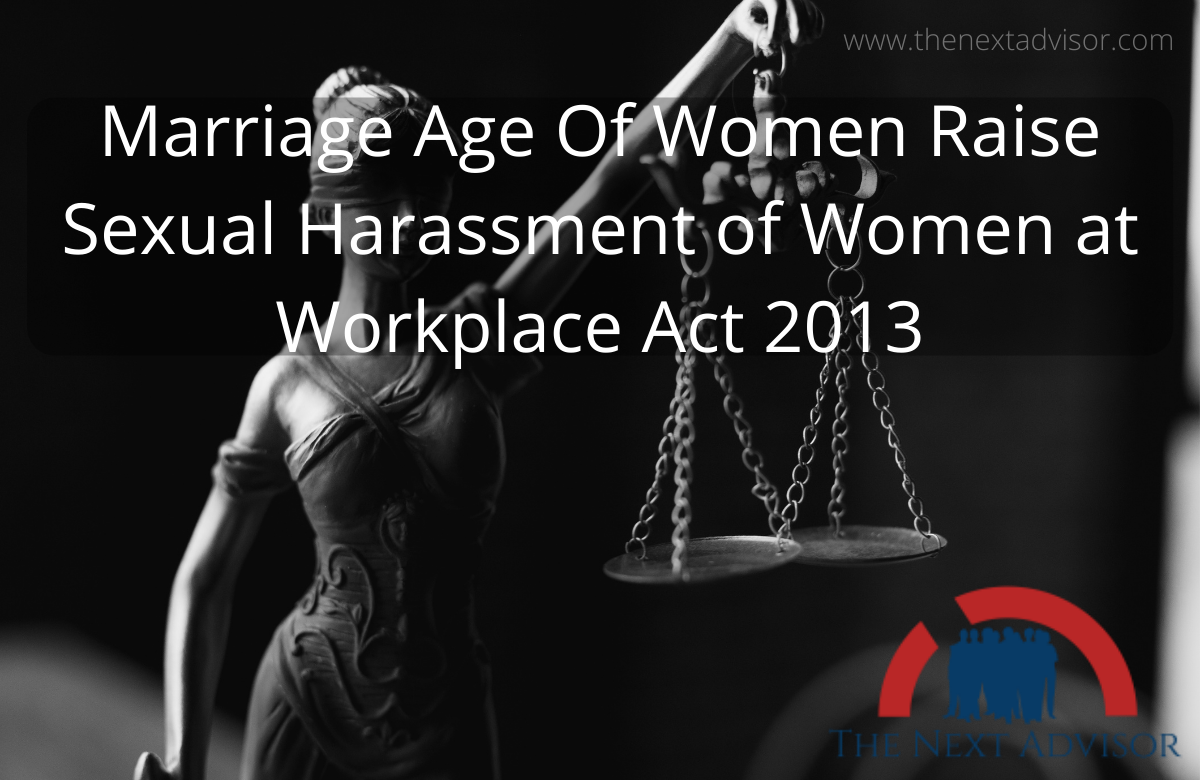Today I would like to discuss a very important topic i.e. xxxual harassment of women in the workplace. There is a need for gender neutrality of xxxual harassment of women at workplace Act 2013. Let me explain it in detail with some important points.
Background of the xxxual Harassment of Women at Workplace Act 2013
This act was passed…..
- In pursuance of Vishakha guidelines given by the Supreme Court. (Vishakha & others v State of Rajasthan, 1997)In this case, the Supreme court acknowledge the gravity of xxxual harassment of working women at the workplace. The Supreme court laid down the guideline to make it mandatory for employers to prevent the commission of such an Act.
- India had already signed and ratified the Convention on Elimination Of All forms of Discrimination Against Women, (CEDAW) but had no domestic law in furtherance of it. So, this was to assimilate the international obligation in the Indian legal system.
Scope of the Harassment of Women at Workplace Act 2013
- It extends to private as well as public places.
- It covers schools as well as colleges.
- It also covers the transportation taken and places visited by employees during the course of employment. Here the workplace is not confined to the traditional office setup instead it goes for the to include organization, department, offices, branches, units, sports complexes, etc.
- It shall also extend to Army men, as decided by Armed Forces Tribunal. This is the very important provision of this comprehension Act.
Requirement of this particular law ( Harassment of Women at Workplace Act 2013)
- To Realise Gender equality at workplaces.
- To get rid of a hostile environment at workplaces.
- To protect fundamental rights u/a 14,15,19(1)(g) and also to realize provisions of Article 42.
- For inclusive growth and social development.
Main features of the Act
- It provides for the definition of xxx harassment of women in the workplace.
- Definition- Any act of the following mentioned categories shall include: xxxual harassment of women!
1. Any physical contact and advances.
2. A demand or request for xxx favors.
3. Showing pornography against the will of women.
4. Making xxxually colored remarks.
Who qualifies for protection under this act?
Any woman who is:
- Employed in an organization
- Is a client, customer, daily wage worker, or any work accomplice
- Is a student or research scholar in educational institutes
- Is a patient in a hospital
- Employed in unorganized sectors means domestic workers also come in this Act( it is the very important provision of this act)
- It provides for a redressal mechanism.
- Provides for constitution of an Internal Committee called internal complaint committee, wherever there will be more than 10 employees.
- Provides for a Local Committee at District and Block levels. it is also called the local complaint committee.
- There is one internal and one local committee.
- The committees have to complete the inquiry in 90 days and then send the report to District Officer, who has to take action in 60 days.
- The act requires the employers to Conduct education and sensitization programs And develop policies amongst other obligations.
- The act also provides for Safeguards against false allegations.
- Before initiating the inquiry, if requested by complainant, conciliation is to be provided by the committees.
- The inquiry process under the Act should be confidential and the Act lays down a penalty of Rs 5000 on the person who has breached confidentiality.
- Non-compliance with the provisions of the Act shall be punishable with a fine of up to 50,000. Repeated violations may lead to higher penalties and cancellation of licence or registration to conduct business.
Process of filing the complaint
- The complaint must be made in writing within 3 months of the incident.
- During the course of inquiry, she might ask for her transfer(or of respondent), or a leave if 3 months.
- In case of mental or physical incapacity a complaint may be filed inter alia by her relative or friend or her co-worker or an officer of the National Commission for Woman or State Women’s Commission or any person who has knowledge of the incident, with the written consent of the aggrieved woman.
- The inquiry must be completed in 90 days.
Internal Committee in detail
- It should be headed by Senior level woman employee.
- One member must be from an NGO or some other such association.
- Details of the committee must be displayed at the workplace.
- Half of the members of the committee must be women.
- The Committee must have at least two members who should have experience in working for causes relating to women.
Vishaka Case Guidelines
- Gender equality includes protection from xxxual harassment and the right to work with dignity as per our constitution.
- Extra hazard for a working woman compared her male colleague is clear violation of the fundamental rights of “Gender Equality’ & Right to Life and Liberty.
- Safe working environment is fundamental right of a working woman.
- In no way should working women be discriminated at the workplace against male employees.
Journey ahead
It was recommended that in order to have fruitful result from this Act. There is a need to…..
- Invoke strong commitment to the cause.
- Involve diligent investigative mechanisms.
- Manage issues effectively.
- Proper Compliance with the act.
Major Concerns
- Creation Of Complaints committee
- Sensitization of Employees
- Statutory Compliance
- Capacity Building



























